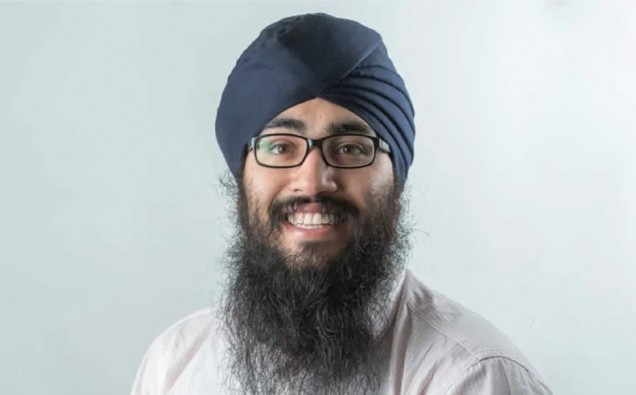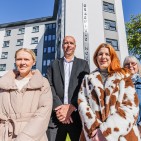Born and raised Birmingham resident Joht Chandan is believed to have become the youngest medical professor in the United Kingdom at 32 years old.
Professor Chandan from the University of Birmingham was made Clinical Professor of Public Health in August, having already established a track record for research in health inequalities and violence prevention. Chandan studied medicine in London before moving back to Birmingham in 2016 to continue his training as a junior doctor, where he also pursued a part time PhD in Public Health.
Chandan has since attracted more than £19m of research funding as Principle or Co-Investigator for research in violence prevention, addressing health inequalities, public health and health data science. Key publications include the establishing of how and why survivors of violence against women and children experienced ill health. Chandan established an international reputation in violence reduction, being on the leadership team for Lancet Commission on Violence Against Women and Children and now leads the NIHR Global Health Group on Violence Against Women and Children, focused on fostering research capacity in the UK and across 12 countries.
In a time where health inequalities are widening in the UK and around the world, I am proud to be working with partners working in healthcare, research and policy, such as Birmingham Health Partners to understand and find imaginative solutions to bring equitable access to quality health provision.
Professor Joht Chandan
Professor Joht Singh Chandan, Clinical Professor of Public Health at the University of Birmingham said:
“I am honoured to have become the youngest clinical professor in the UK. The honour is testament to my family, friends, colleagues and Gurudwara community who have supported and pushed me over years, particularly my family who have inspired me to work hard and live an honest life.
“In a time where health inequalities are widening in the UK and around the world, I am proud to be working with partners working in healthcare, research and policy, such as Birmingham Health Partners to understand and find imaginative solutions to bring equitable access to quality health provision.
Special Constable
During his medical degree at University College London, Professor Chandan also began volunteering as a Special Constable for the Metropolitan Police. After moving back to Birmingham to pursue his medical career, Chandan continued to volunteer with West Midlands Police, and he’s believed to be the first active Special in UK Policing to pass the national standard detective exam. Joht became the first Special to work as part of the Child Abuse Investigation Unit, which plays a vital role in protecting young people from neglect and maltreatment. The combination of day job as a doctor and volunteer duties in this area prompted him to start working on a PhD.
Professor Chandan said: “We spend a lot of time in medical school thinking about how to be empathetic and non-judgemental, but it’s more difficult to understand what is happening in the lives of our patients as we always make them come to us in hospitals and GP surgeries. What I saw volunteering with the Police played an important role in my decision to pursue public health. Officers work exceptionally hard in the community to understand how to best support vulnerable groups.
“On my shifts I begun to see how people from vulnerable backgrounds, those who were victims or perpetrators of crime, experienced poor health and I knew that at this point my calling was in Public health to do something to support such communities.”
Handsworth Wood
Chandan grew up in Handsworth Wood in Birmingham alongside his two inspirational older siblings (Har-Inder and Pritam), where his hard-working parents (Jaswinder Pal and Sukhwinder) ran a local business, JP Emporium, in Handsworth for 35 years. Chandan combined school and field hockey where Chandan represented the national team as a goalkeeper, while playing for local team Barford Tigers.
With his loving and supportive wife, Jaidev (whom he met whilst doing his postgraduate studies at the University of Birmingham) and young son, Sukhjinder, Professor Chandan continues to work and live in the city.
Chandan said: “My heart is in this city [Birmingham] and I have very fond memories from my childhood. During my school years at King Edward’s Camp Hill School for Boys, I really enjoyed sciences and design and I’m grateful for the support from my teachers who encouraged me to pursue medicine and helped me find my calling in public health.”

















